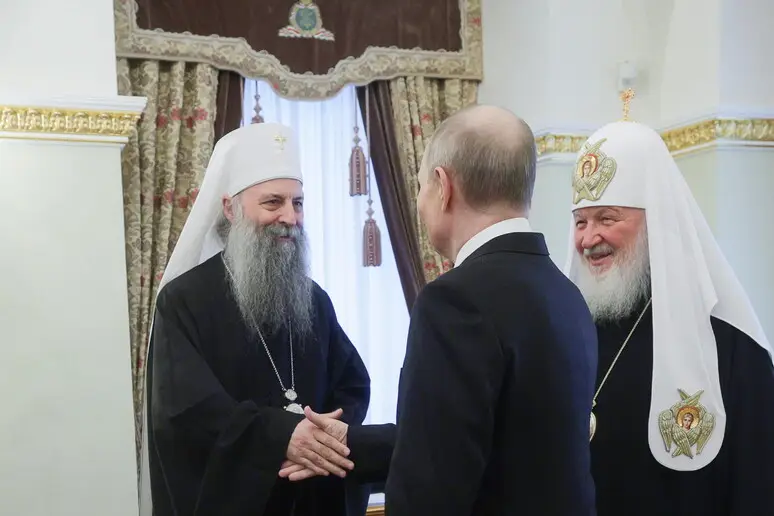During an official visit to Moscow, Patriarch Porfirije of the Serbian Orthodox Church (SOC) met with Russian President Vladimir Putin and delivered a politically charged statement that has sparked considerable reaction across the region. Moving beyond typical ceremonial language, the Serbian Patriarch emphasized the strategic and ideological alliance between the SOC and the Russian Federation.
“Our stance on issues like Kosovo, Republika Srpska, and Montenegro largely depends on the position of the Russian Federation,” Porfirije stated during the meeting, according to reports by Russian and Serbian pro-government media.
He underscored the deep spiritual and political connection that the Serbian Church seeks to maintain with Moscow, expressing a vision of alignment with what he called the “Russian world.”
“My wish — and the wish of most of the Serbian Church — is that in the event of a new geopolitical division of the world, we would be close to the Russian sphere and the Russian world.”
The Patriarch also thanked Russia and China for their continued support of Serbia’s stance on Kosovo, stating:
“I don’t know what would have happened to Kosovo if it weren’t for Russia and China.”
His remarks align with long-standing Serbian foreign policy, which relies heavily on Moscow’s veto power at the United Nations to block Kosovo’s international recognition.
The meeting between Porfirije and Putin is seen as part of Russia’s broader efforts to bolster its influence in the Balkans, amid global tensions, especially in the context of the ongoing war in Ukraine and Moscow’s strained relations with the West.
Reactions from Kosovo and International Community
Kosovo’s political leaders have not yet issued formal statements in response to the Patriarch’s comments. However, analysts expect strong reactions, particularly given the timing — just weeks after renewed EU and U.S. efforts to relaunch dialogue between Prishtina and Belgrade.
International observers have previously warned about the increasing role of religious institutions in regional geopolitics, noting that such statements risk further polarizing communities and undermining reconciliation and EU integration efforts in the Western Balkans.







